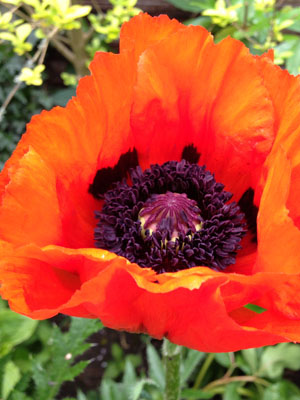Crop Rotation Group
Miscellaneous
|

|
Soil
Fertile, well-drained soil enriched with plenty of compost.
|
Position
Full sun to partial afternoon shade.
|
Frost tolerant
Yes. Both Iceland poppies and Oriental poppies are tremendously cold tolerant once established.
|
Feeding
In spring, mulch the dormant plants with rich compost.
|
Companions
-
|
Spacing
Single Plants: 7" (20cm) each way (minimum)
Rows: 7" (20cm) with 7" (20cm) row gap (minimum)
|
Sow and Plant
Perennial poppies can be started from seed sown where you want the plants to grow, or you can buy seedlings in spring. Some of the showiest Oriental poppies are propagated from rooted cuttings rather than seed. Plant as early as possible so the plants can establish themselves in cool weather.
Our Garden Planning Tool can produce a personalized calendar of when to sow, plant and harvest for your area.
|
Notes
Iceland poppies may not survive hot summers, but will often reseed themselves, with new seedlings appearing in autumn. They are the best poppies to grow for cut flowers, and some varieties are fragrant. Big, bold oriental poppies form clumps over time, and are dependable perennials in temperate climates with cold winters. They are never bothered by deer.
|
Harvesting
Snip off old blossoms to keep the plants looking neat, and to encourage reblooming.
|
Troubleshooting
Summer heat can cause Iceland poppies to stop blooming or melt away. Oriental poppies leave a gap in mixed borders when they die back in late summer.
|